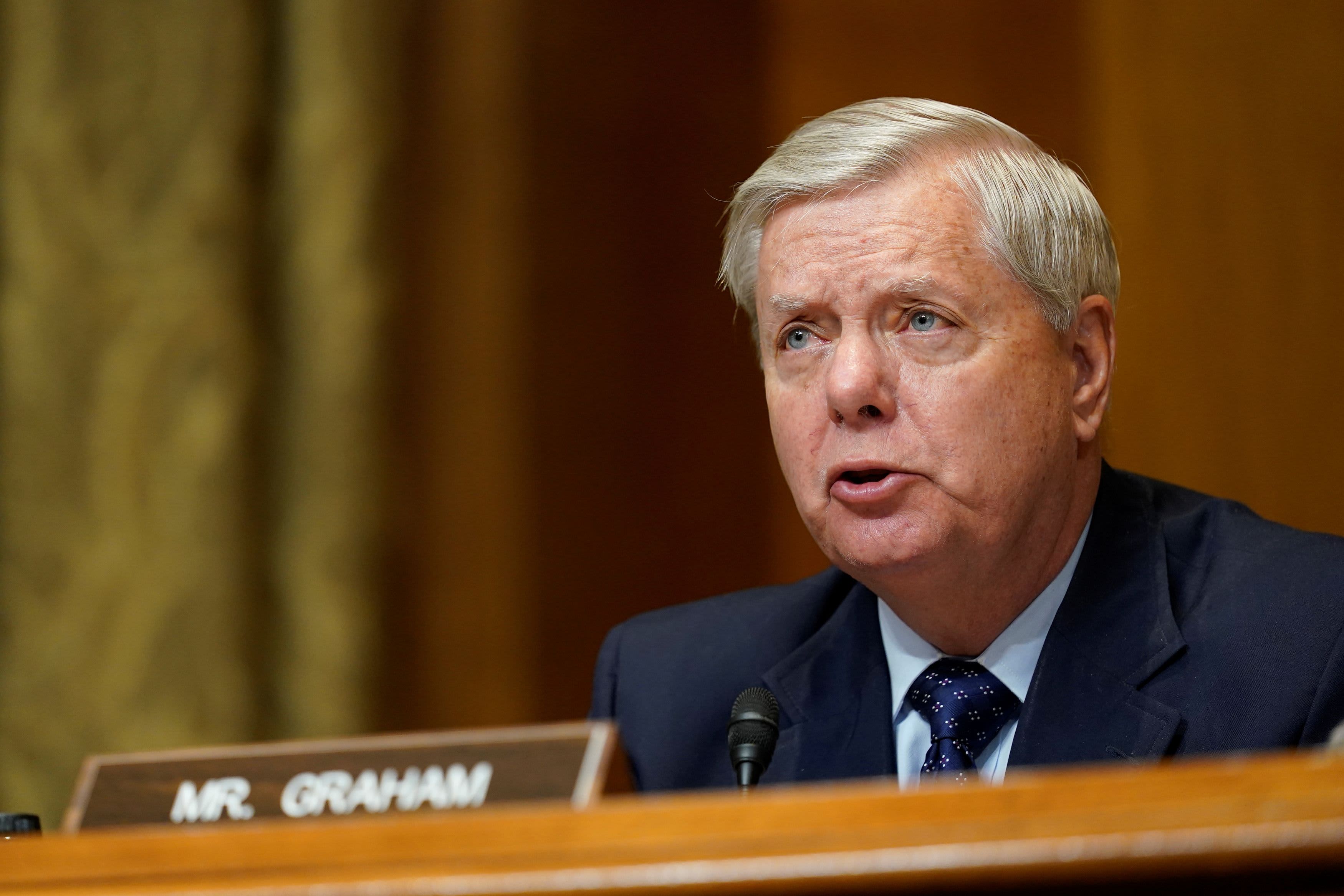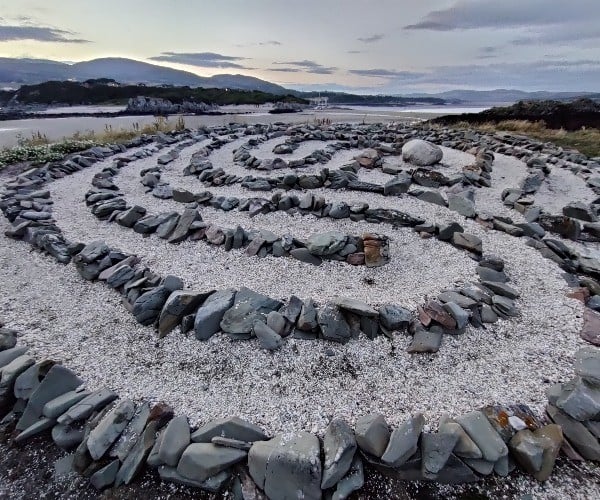GOP Senator predicts that Biden Supreme Court prospect Michelle Childs would win more than 10 Republican votes
GOP Sen. Lindsey Graham predicted that if Biden were to nominate Supreme Court prospect Michelle Childs, she would garner more than 10 Republican votes.

Senate Budget Committee ranking member Sen. Lindsey Graham, R-S.C., speaks during a hearing examining wages at large profitable corporations on Capitol Hill in Washington, U.S. February 25, 2021.
Susan Walsh | Reuters
WASHINGTON -- Republican Sen. Lindsey Graham on Sunday predicted that if President Joe Biden were to nominate South Carolina federal judge Michelle Childs to replace retiring Justice Stephen Breyer on the Supreme Court, Childs would likely win more than 10 Republican votes in the Senate.
"She's somebody, I think, that could bring the Senate together and probably get more than 60 votes," Graham said on ABC's "This Week with George Stephanopoulos." "Anyone else would be problematic," he added.
A former chairman of the powerful Senate Judiciary Committee, Graham hails from South Carolina like Childs, and he has spoken highly of her in the past.
"She's considered a fair-minded, highly gifted jurist," Graham said in a January interview, adding that Childs "is one of the most decent people I've ever met."
Judge J. Michelle Childs of the United States District Court, District of South Carolina is seen in an undated photo.
Courtesy U.S. District Court, District of South Carolina | Reuters
On Sunday, Graham again praised the U.S. District Court judge, saying her humble background and non-Ivy League education meant she would bring educational diversity to the high court, which is stocked with Ivy League graduates.
Left unsaid was the fact that if Childs were confirmed she would also become the first Black woman to serve on the Supreme Court, fulfilling Biden's campaign promise to nominate a Black woman if he ever got the chance to fill a vacant seat.
Also weighing in Childs' favor is the support she has from Democratic Rep. James Clyburn of South Carolina.
A deeply influential figure in his home state, Clyburn's endorsement of Biden in 2020, delivered just before the South Carolina Democratic primary, is widely seen as having turned the tide on Biden's faltering campaign.
Childs is currently one of three potential nominees on Biden's shortlist for the high court, alongside Judge Ketanji Brown Jackson of the U.S. Court of Appeals for the D.C. Circuit and California Supreme Court Justice Leondra Kruger.
As Biden prepares to interview the top three candidates this week, Graham's prediction that Childs could win more than 10 Republican votes is significant, because Graham also seemed to imply that if Biden were to nominate Childs she would have a relatively smooth confirmation process. That could be very good news for a White House that is facing multiple domestic and global challenges.
Currently, Biden's job approval rating is underwater with voters, many of whom blame the president for the fact that inflation is at a 40-year high and the Covid pandemic shows no signs of ending anytime soon.
Overseas, Biden faces a military and foreign policy crisis in Ukraine, where the imminent threat of a Russian invasion has prompted the U.S. to pull staff from its embassy in Kyiv and warn Americans that war could break out "any day."
Against this backdrop, a drawn-out, ugly Supreme Court confirmation battle this spring would tax the president's time and his political capital, at a time when both are in short supply.
By contrast, if Childs were to be nominated and then confirmed with more than 10 Republican votes, as Graham predicted, it would represent a rare break from the increasingly bitter partisanship that has overtaken Washington in recent years and reflects a nation where political divides are deepening.
With the Senate divided evenly among Republicans and Democrats, Biden doesn't technically need any Republican votes to confirm his nominee because Vice President Kamala Harris would break a tie.
But a bipartisan confirmation vote of the sort that Graham is predicting for Childs, with 10 or more Republicans crossing the aisle, would represent a much-needed political and personal victory for Biden.
As a candidate, Biden promised to govern as a centrist and a unifier. In practice, however, this has proven far more difficult than it seemed on the campaign trail.
U.S. President Joe Biden speaks to the news media as Biden and Vice President Kamala Harris host Senate Judiciary Committee Chairman Dick Durbin, a Democrat, and the committee's ranking Republican, Charles Grassley to discuss the upcoming U.S. Supreme Court vacancy from the Oval Office at the White House in Washington, U.S., February 1, 2022.
Leah Millis | Reuters
A Supreme Court confirmation vote that brought together Democrats and Republicans would diverge from the pattern established by the last two Supreme Court confirmations, those of Justices Brett Kavanaugh in 2018 and Amy Coney Barrett in 2020.
Both Kavanaugh and Coney Barrett were confirmed by Republican-controlled Senates along straight party lines, with no Democratic votes.
Kavanaugh's confirmation battle was the most bitter in recent memory, as senators weighed a serious allegation of attempted sexual assault that was leveled against Kavanaugh during his confirmation hearings.
By contrast, Coney Barrett was confirmed to the high court in October of last year, just 30 days after she was nominated by then-President Donald Trump.
Biden has promised to announce his nominee to the Supreme Court before the end of February.

 AbJimroe
AbJimroe 

























.jpg&h=630&w=1200&q=100&v=6e07dc5773&c=1)






